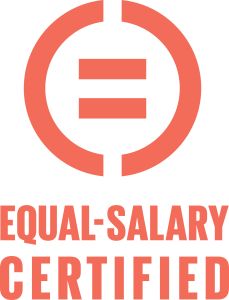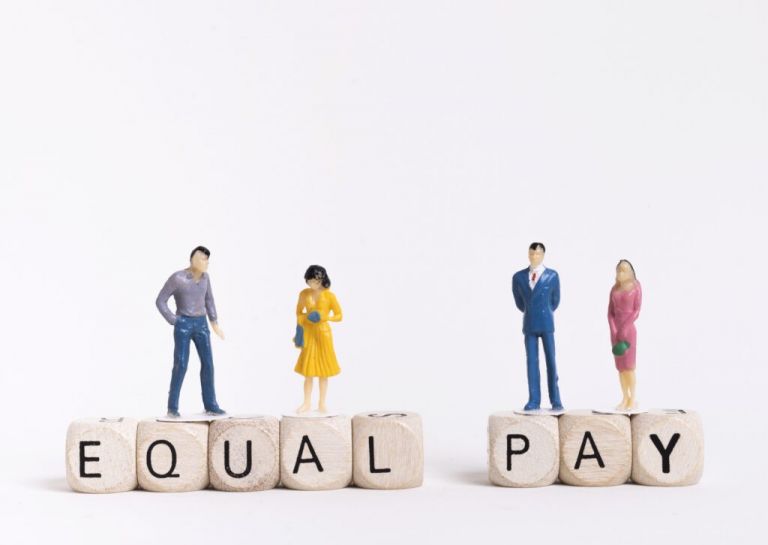Equal Pay for Equal Value | Best Practice by UBS
Ever questioned if your organization takes pay equity seriously? Or wondered if you are paid fairly versus your colleagues? UBS is not afraid to be challenged on this issue. Our commitment to ensuring equal and fair pay was recently recognized when we received a certification for our equal pay practices in Switzerland from the Swiss Foundation EQUAL-SALARY.
This best practice was first published in the Gender Intelligence Report 2020.
Making sure that our employees are fairly compensated for their work, that is the making of our success, both in real terms and relative to others. Equal pay principles have long been embedded in all of UBS’ HR policies and practices, not just in terms of compensation, but development and promotion decisions as well, and from hiring and onboarding through to retirement. “We pay for performance and are committed to pay all our employees fairly”, noted Group Head Human Resources Stefan Seiler. “We conduct regular internal as well as independent external equal-pay reviews, including gender pay-equity analysis, to make sure we’re getting it right.”
At UBS we know that Gender diversity, equal opportunity and pay equity are critical to our long-term success. Excellent people-management processes help us attract and retain great employees, and we want them to feel confident that we’re paying them fairly and equitably. Our new certification from EQUAL-SALARY for UBS in Switzerland further confirms that Human Resources and senior management champion equal pay practices and that, as a firm, we’re committed to fair pay for all employees.

Head of Diversity and Inclusion Region Switzerland at UBS


In fact, the certification process considered far more than simply the base pay as might be suggested by the foundation’s name. The auditors we invited in started by looking at all of our HR policies and practices. In addition to reviewing reams of data on Switzerland-based employees’ salaries and variable incentives, they completed reviews and interviews with senior leaders, HR specialists and randomly selected employees and line managers across Switzerland, and our Group CEO and President Switzerland. Questions put to interviewees included their views on equal treatment, equal opportunities and pay equity.
In the end, the auditors found that statistical wage differences between female and male employees within UBS in Switzerland were very low, and well within the range set by the foundation to qualify for certification. The findings support those of a separate wage analysis commissioned last year across the whole of the firm, which found that the unexplained differential in salaries for men and women was less than one per cent.
We’re already leveraging the findings to further improve our global compensation practices across Switzerland and in other regions. Switzerland was also something of a ‘pilot’ location for such audits. We’re committed to conducting similar independent reviews in other markets. Along with equal pay, we will continue to prioritize gender diversity and build on our steady progress in hiring, promoting and retaining more women across the firm.
This Best Practice was first published in the Gender Intelligence Report 2020.

Discover how EY is leading a paradigm shift in the workplace by embracing flexible working arrangements. Explore their innovative strategies for getting clients on board with this transformative approach, fostering collaboration and driving business success.

NatWest champions working families through their comprehensive initiatives, such as Partner Leave, Phase-Back Program, and a Remote First approach. Uncover how they lead in creating a gender-balanced and inclusive environment that supports employees' specific needs.

Experience KPMG's commitment to empowering employees through flexibility and work-life integration. Discover their diverse initiatives challenging traditional norms and supporting new parents, fostering a thriving workplace for all.

Step into ABB's world and witness their groundbreaking gender-neutral parental leave program. Discover how ABB fosters a gender-balanced and inclusive environment, breaking boundaries and paving the way for working families to thrive.

Discover how Migros revolutionizes the workplace with its commitment to work-life integration. Explore their emphasis on part-time positions, hybrid work models, and leadership support, creating an environment where employees can flourish.

Implementing a holistic 4 pillar pay equity framework led to decreasing the pay gap to under 1% - and keeping it there.

Leaders insisting on pay equity and undertaking serious independent analyses builds trust and a culture of inclusion.

A customised internal salary modelling tool ensures fair salaries and strengthens employee confidence.

The full pay flexibility deal allows new parents to decide how they want to manage the transition back to work.

Looking beyond data helps Syngenta make pay equity a fundamental element of the company's culture rather than just a project to tick off.

Chances for promotions are equal for full-time and part-time employees thanks to a strong culture of flexible working.

#sharethecare shifts the narrative from ‘caregiving is strictly a woman’s responsibility’ to ‘caregiving is for both parents’. A bold ambition aiming to cultural change.